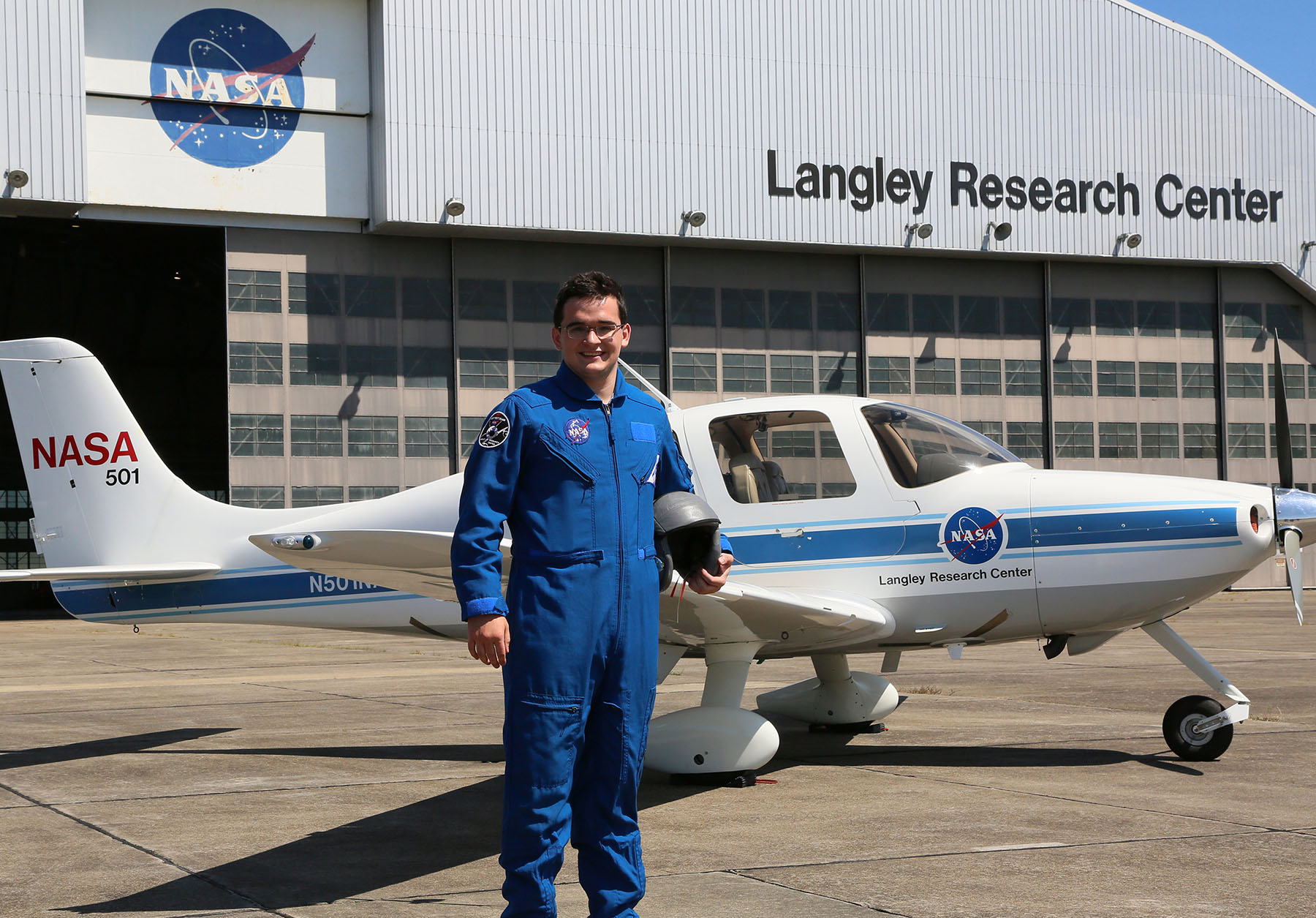Sean MacBride ’20

Interned with: NASA Langley Research Center in Norfolk, Va.
Major: Physics
Hometown: Burlington, Vt.
Science projects: “I worked in an office to devise a model to determine favorable laser levels that would emit in the mid-infrared and near-infrared wavelengths. I also worked in a spectroscopy lab to determine the transmission, absorption and reflectivity of certain materials, and if they matched criteria for a near-infrared and mid-infrared laser resonator. I also worked on the final part of designing a pump laser that emits in the near-infrared in order to operate a mid-infrared laser using a lanthanide crystal. This laser has applications in environmental analysis, medical technologies and military operations.”
On the value of networking: “I made a quick Google search in November of last year for ‘NASA undergraduate internship.’ I found out that NASA had a program where you can create a universal application and apply to 15 different internships. So I applied—and got rejected from all 15. About two weeks after they sent out the initial offers, I was contacted by [NASA aerospace technologist] Brian Walsh. He went to graduate school with the professor who gave me my first lab experience at Wheaton, [Professor of Physics] John Collins. I was hired within the week.”
Inside view: “Being able to work on the early research and development for a major project that is integral to a NASA mission is an incredible experience. It allowed me to get an inside look at a research cycle and the politics of project proposals at a research institution like NASA.”
Facing fears: “The first day I walked into Langley, I was scared. I was probably one of the youngest people there. I had no experience in a full-time research position entering the internship, and not having that left a lot of variables as to what I should and shouldn’t expect in terms of the lab environment, office environment and project expectations. That inexperience also had a positive side, as I often wondered how many scientists can say they got their start at NASA.”
Professional development: “The most important skill I learned had absolutely nothing to do with research, science or lasers. I learned within the first two weeks that I was a professional, and in order to be a professional, I had to get professional. Networking with individuals in my field, having business cards and participating in meetings with colleagues for future research opportunities became a formality. Learning to be a physicist rather than a trainee was the most important skill I learned from my internship.”
Next steps: “Working at NASA helped me realize that I need to get a Ph.D. in physics if I want to go anywhere in physics outside of a college classroom. My main career goals are to either get tenure as a professor of physics, or to research physics at an institution such as NASA. This internship at NASA has helped get my foot in the door to other research institutions.”
